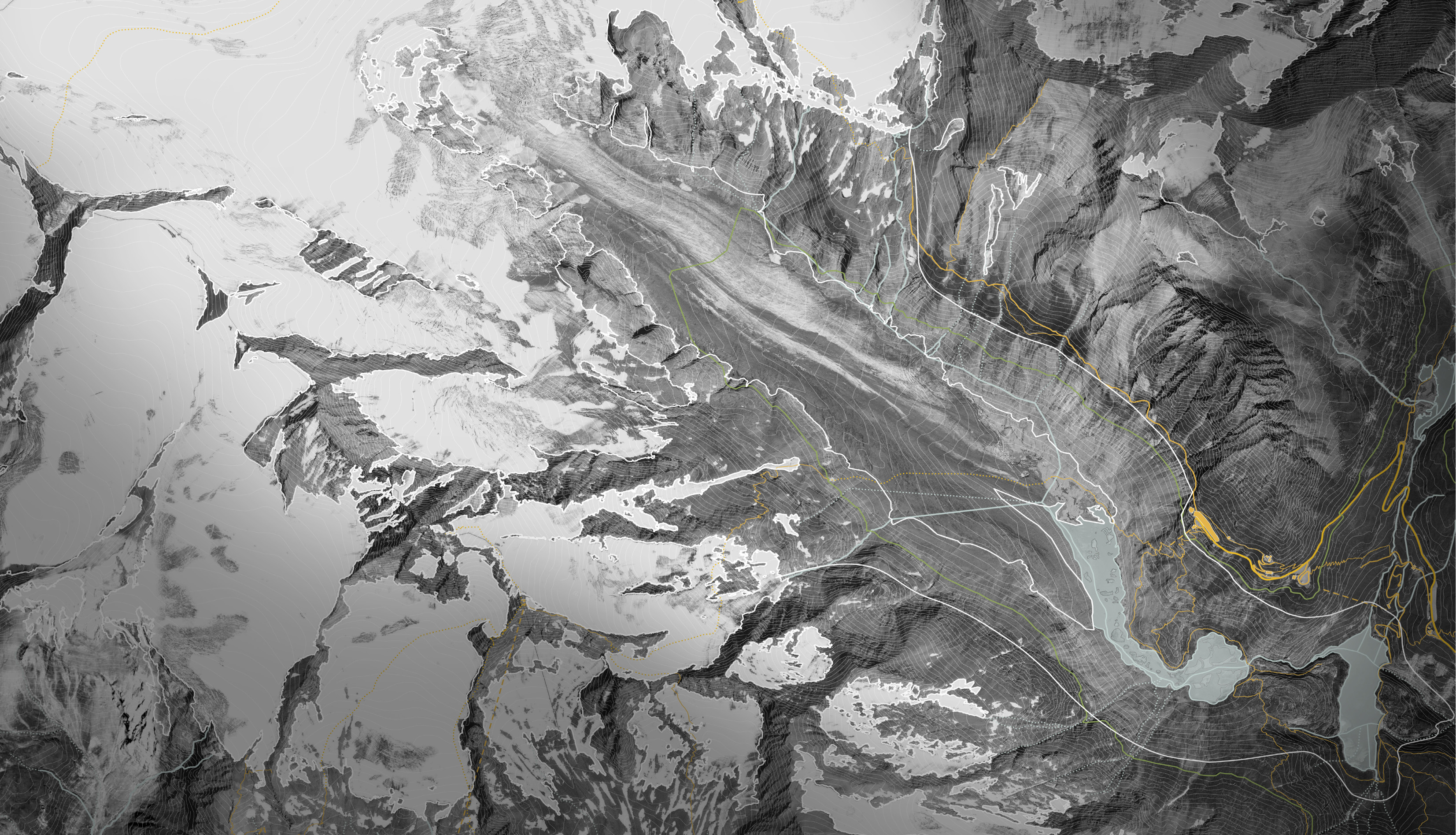
New Alpine Grounds
Master's thesis
Leibniz Universität Hannover
This master´s thesis is based on the impact of climate change on the glacial landscape in the alps. Due to global warming glaciers are receding rapidly, which leads to the growth of glacier forefields. The consequences of glacial melting and thawing permafrost involve hydrological changes such as flooding and dry phases of proglacial meltwater streams, soil genesis, ecological succession and increasing natural disasters like rockfall or mudflow. The transformation of the characteristic landscape concerns the tourist industry which plays an important economic role. The romantic landscape of white alps covered by glaciers is being displaced by a dreary landscape consisting of ground moraines and steep lateral moraines. Nevertheless, on closer inspection the development of glacier forefields proves to be versatile. A comparison of three site examples shows that different topographical situation, landscape elements and diverse dynamic processes require the location-based planning. The design assumes zonation especially a visit ban in the hazard zones, such as lateral moraines, which are vulnerable to erosion. A minimization of human interference supports nature conservation in protected areas. The individual experience of dynamic landscape is the main design topic, which include the characteristic water spaces and specific space sequences, such as rock formations or areas dominated by vegetation. Particular design strategies are developed to show how landscape architecture can react to the specific processes in glacier forefields. Landscape architecture could strengthen a planning which reacts to the continuous development of glacial landscape and is able to make the typical dynamics visible and experienceable.
